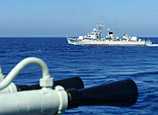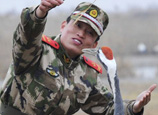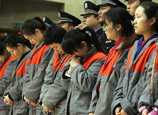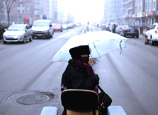
Wee served in the Singaporean military for 10 years and back then he used to run 5km to 20km in regular training. After that he continued to run for the love of it.
Then he heard about the Sahara run. "Sometimes you need to pace yourself in life, and that's so true," Wee said of his "personal journey" in the Sahara.
In his first race, he took the wrong food supplies. He didn't have enough salt to help him retain water to compensate for sweating. He planned to have cereal and hot chocolate for breakfast, but it was too sweet.
From the third day, he felt stress, pain, hunger, aching joints and muscles. He was dehydrated and exhausted for lack of sleep.
He didn't consider quitting.
"I can slow down, I can walk, I can crawl, but I want to finish. I want to be out there having fun," Wee said.
Asked what he achieved during the period, he said the time was like a period of self-conversation in a new environment with unforgettable memories.
"My wife is very proud of me and I tried to set a very good example for my little daughter, so I can tell her that if her father can do it, so can she," Wee said with a laugh.
Chen Huaiyu, who owns an interior decorating company in Shanghai, is another veteran of the Sahara. But before she got in shape she was "so afraid of any sports that even crossing pedestrian bridge seemed tiring."
Volunteer start
Chen, now around 35, said she started out with friends in an EMBA program who went to Qinghai Province a month after a devastating earthquake. She and her friends in the China Europe International Business School helped survivors and volunteered doing whatever was needed. At one point, the friends wanted to get off the bus and walk 10km at a high elevation to the Sanandaj National Projection Station, which had been heavily damaged.
"I was so shocked and thought they must be crazy to walk so far at such an altitude, but now that kind of exertion is just a piece of cake for me," she told Shanghai Daily.


















 High-profile divorce saga ends
High-profile divorce saga ends


![]()
